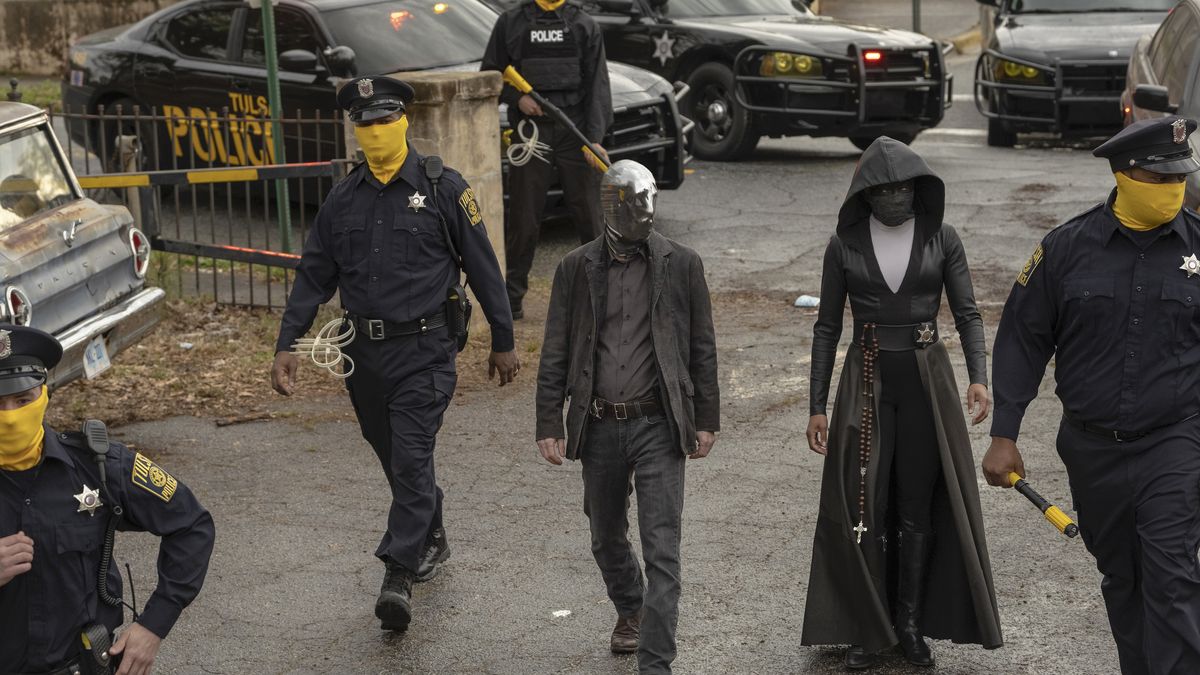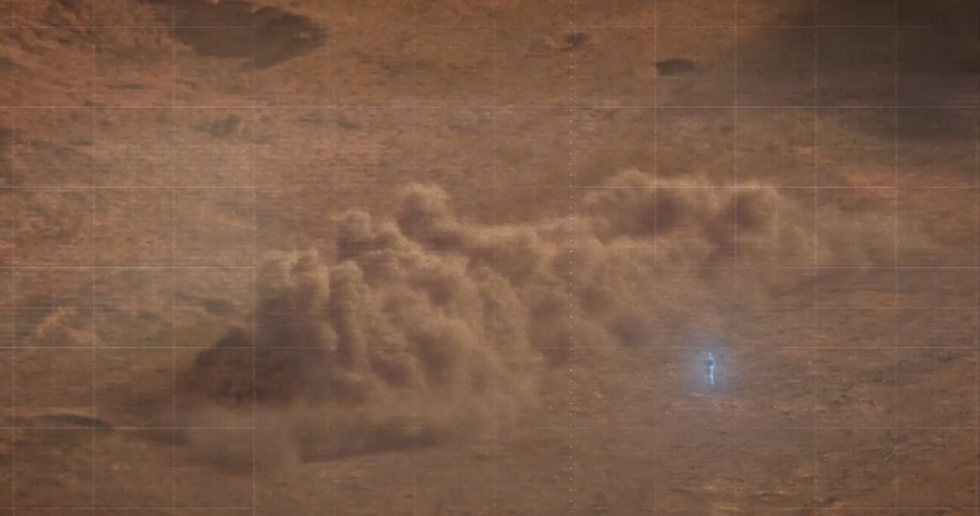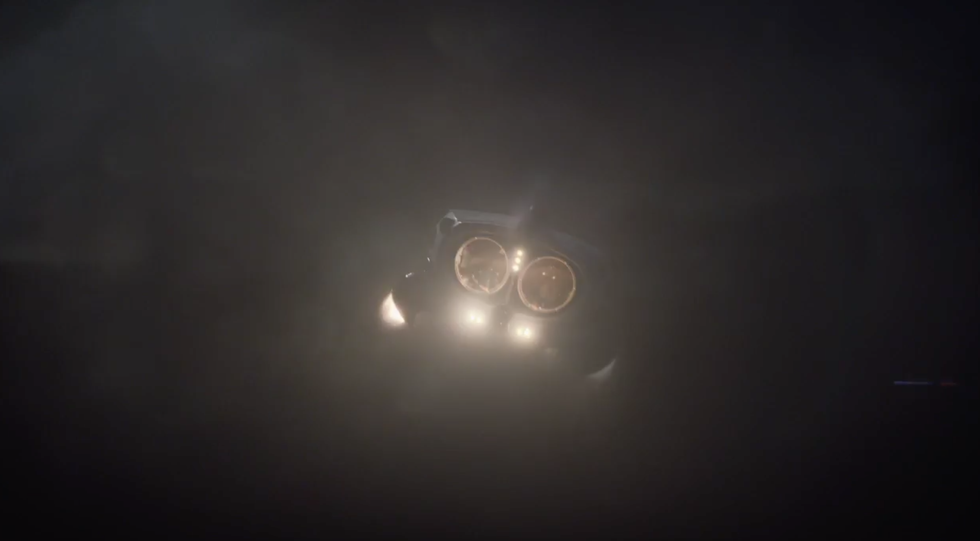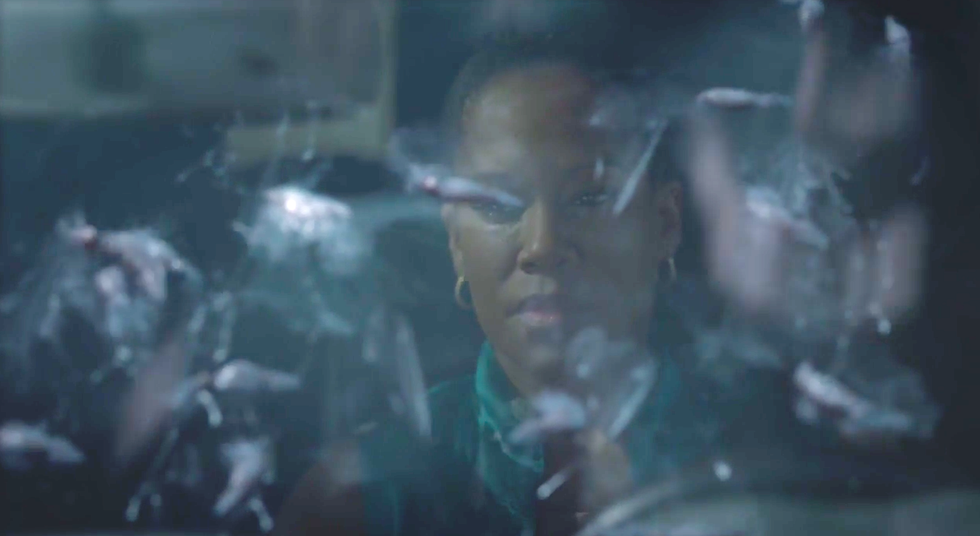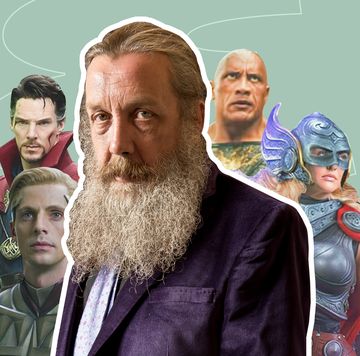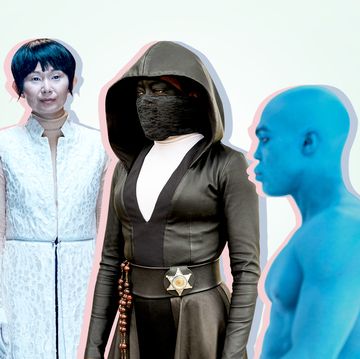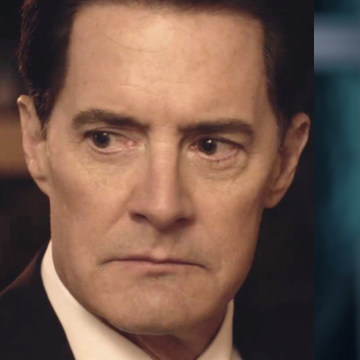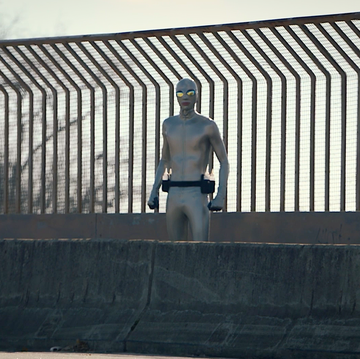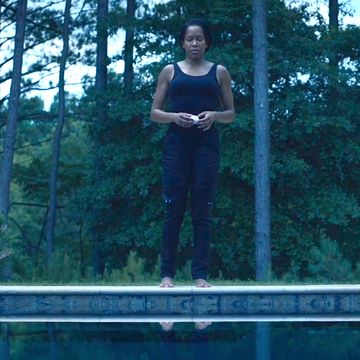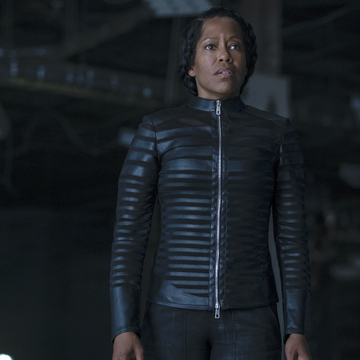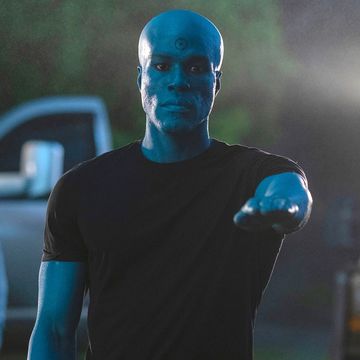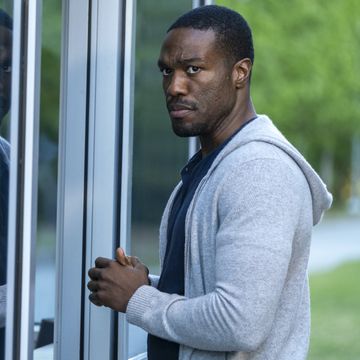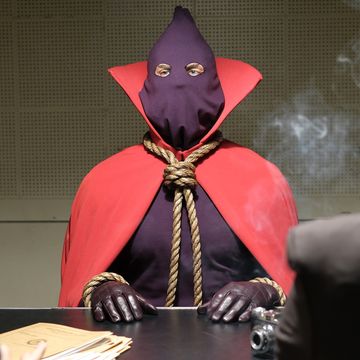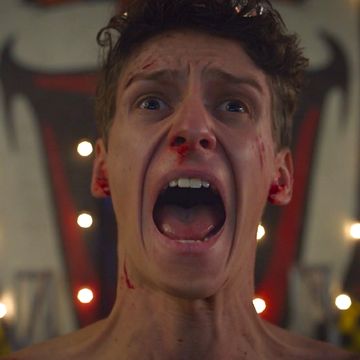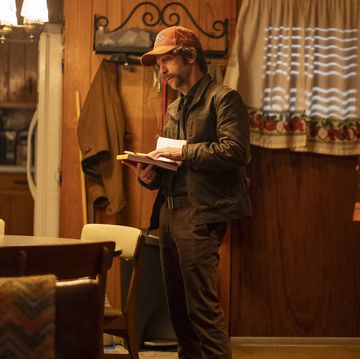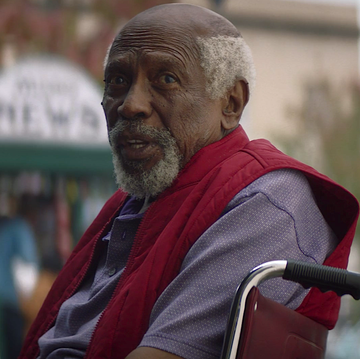To understand the baggage of Watchmen is to understand the history of comic books—and their transition to the biggest Hollywood genre of the modern era. Watchmen, a 12-issue comic series in the mid-'80s by Alan Moore and Dave Gibbons, fundamentally changed the medium as we know it. Comic books were still considered a lesser form of children's entertainment when Moore and Gibbons's political, deeply thought-provoking Watchmen series proved that superhero stories could be as challenging as any work of dramatic literature. The text tackles everything from the dangers of nuclear war, to metaphysics, the Cold War, and the ethics of power and governance. It has been debated by scholars, critics, political scientists, and fans for three decades. Both Alexandria Ocasio-Cortez and Ted Cruz have quoted Watchmen to prove points on opposite sides of the political spectrum. There have been prequels. There have been sequels. There was a disappointing movie by slo-mo enthusiast Zack Snyder. You could connect a line from Watchmen in 1986, to the groundbreaking Christopher Nolan Batman films, to the rise of the MCU, and even this month's deeply controversial Joker.
For HBO to create a continuation of the comics as a new series was a big deal—fans have been debating the merit and quality of this new show since it was nothing but a rumor. The show's creator, Damon Lindelof, has been defending his credentials as a showrunner and every little decision for years against a passionate fanbase that takes comic books—but Watchmen in particular—very seriously. Moore, the original creator, has disavowed the HBO show. Lindelof has literally told Moore to fuck off.
So, when I say HBO's Watchmen series premiere is challenging—perhaps the most challenging debut of any show this decade—I mean that in a few different ways. It's challenging to anyone who hasn't read the comics—who is experiencing this strange and complex universe for the first time. There's a learning curve here, one that is helped by understanding the rhythm and storytelling that Lindelof is capturing from the comics. But it's also challenging to anyone who has read the comics. It's also quite possibly the most politically challenging show released during a deeply confounding time in American history. Watchmen fearlessly challenges all points on the spectrum, rebuilds our ideas of conservatism and liberalism from an alt-history perspective, and provides a new lens through which we can approach these ideas.
But, as anyone who watched the series premiere on HBO tonight can attest, it's absolutely worth the challenge. Watchmen is the most important show of the year. In an era where major entertainment is defined by superheroes, Watchmen is a show that defies all expectations—of its original source material, of the genre, and television itself.
And so, Watchmen begins in a flashback to the Tulsa race riots of 1921, where a mob of white people attacked a black community. It's a real moment in American history that's referred to as the "worst incident of racial violence" in the country. While most of Watchmen exists in a fictional alt-history, this massacre in Tulsa actually happened the way it's depicted in the opening of this episode. The Tulsa race riots remain a stain on American history and are a disturbing intro to this story, which delves into the battle against white supremacy that this country has been fighting for centuries. It's also worth noting that this massacre has been largely erased from American history. To see it appear in such vivid detail in this comic book adaptation is powerful and surreal. This opening also serves as an excellent primer for Watchmen's treatment of history, which is at times accurate to ours and at other times altered by the fictional characters who inhabit it. It's this exact reason why the U.S. won the Vietnam War thanks to the appearance of Doctor Manhattan on the side of the Americans. In this series, Doctor Manhattan is no longer helping the U.S., but back on Mars, as is shown in a brief 2019 news segment.
The main storyline takes place in present day, in an alt-history in which Robert Redford has been president for decades (you'll remember at the end of Watchmen, there's a mention that Redford is considering a run for president). But in this liberally controlled country, white supremacy is still a cancer eating away at America. That exists in this story as the 7th Kalvalry, a group of white supremacist fanatics, who hide their faces under a familiar ink blot cowl. That cowl is a visual reference to Rorschach, the demented protagonist from the original comic. In the end of those comics, Rorschach sent his journal to a far right publication to expose the truth. And clearly, the image and idea of Rorschach has been co-opted by the far right into some sort of racist Qanon fringe group. We first see that image when a white man with a Rorschach mask murders a black cop. This is what kicks off the police crackdown on the Kalvalry after they seem to have been hibernating for three years. What's interesting is that during the interrogation of the Kalvalry member, Tim Blacke Nelson's Looking Glass asks if the man thinks that transdimensional attacks on the U.S. are hoaxes by the government. This seems to hint that these Kalvalry members have gotten their hands on Rorschach's journal and interpreted his theory.
But our main protagonist in this Watchmen series is the opposite of Rorschach. She's Regina King's Angela Abar, a wife and mother who moonlights as a masked police officer—forced into hiding after her identity was exposed, making her a target for white supremacist fringe groups. In this story, the police are trying to crack down on the increased violence of the 7th Kalvalry. She's helping the police in disguise, based out of a bakery that's "opening soon." They track the Kalvalry's movements to a cattle ranch where the terrorists are stockpiling watch batteries, for what must be some sort of horrible plan. Abar and the rest of the police force attack, bringing in a ship that looks strikingly familiar to Nite Owl's hovercraft Archimedes. It's unclear at this point if it's the same ship, or some sort of police issued recreation, but it ends up getting crashed at the end of the shootout.
With this, any regular fan of superhero stuff is probably wondering who is good and who is bad in this story. Do we trust the cops? Obviously, the guys running around in the Rorschach masks are not good. Well, that's kind of keeping in the spirit of the original Watchmen comic, as Lindelof told me in an interview for Esquire's November issue, "good guys and bad guys are not really even part of the vernacular here.”
At this point, we can likely count on King's Abar being our protagonist—and hopefully—our hero. But it's important to realize, when consuming this show, that Watchmen gives it to all sides of the political spectrum. We see cops attempting to do their jobs in a world where a Liberal Supreme Court has tightened gun legislation. We're supposed to be sympathetic to the cops. The White Supremacists are the grassroots movement of political agitators. It's hard to get your bearings here, but once you do, it's a valuable commentary on our modern political system—showing how watered down legislation, even legislation we would view as "good," can be fucked up in practice. It's not bothsiderism as much as it is showing us a new perspective on the socio-political landscape we find ourselves trying to unpack in the real world. That is best evidenced in the opening scene with the white Kalvalry member (I'd imagine this is spelled with a K to bring to mind the real-world white supremacist group). It's a reversal of our known social and political landscape that allows for freer storytelling. One thing with Watchmen is certain: we can all agree that the masked 7th Kalvalry white supremacists are evil.
There's also moments of classic Lindelof surrealism—circa The Leftovers or Lost—like when there's a sudden, unexplained rain of squids. The characters play it off as if it's a sudden rain shower. And while I don't know for certain, I'd say this is some sort of echo of the conclusion to the original Watchmen, where a squid was teleported into Manhattan, killing millions. Are these the after-effects? We also get some early images of Jeremy Irons's Adrian Veidt, who is living in an isolated castle surrounded only by his loyal servants.
In the end, King's Abar is called to a tree in the middle of nowhere, where Don Johnson's Chief Judd Crawford is found hanging from a tree. The only witness she has is the elderly man in a wheelchair she saw earlier in the episode outside of her bakery/hideout. He couldn't have possibly killed Crawford, could he? It's not clear, but you'll notice he's holding the note the little boy was given at the beginning of the episode during the Tulsa riots. Thus begins a story similar to the one we saw in the original comics, where a masked vigilante is investigating the murder of an old friend. Everything's different—different from our world, from the world of the Watchmen comics. But it's all so familiar—that's exactly what gives this show the space and freedom to hopefully do some unparalleled storytelling.
